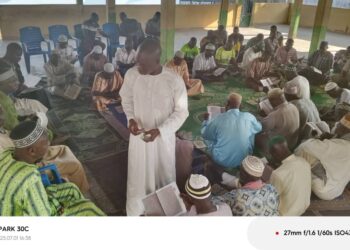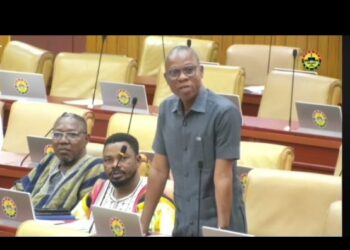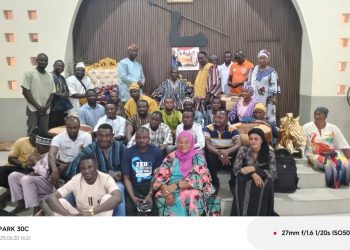
The most difficult aspect of writing is the definition of terms that apparently transcends one area of study.
Particularly so, when communalism is not only broad but forms the foundation of African Philosophy.
It is against this backdrop, I intend to offer a simplistic and general explanation to “communal labour.”Communal labour depicts a situation where members of a defined or particular community jointly carry out an activity that is beneficial to the entire community.
While it is largely voluntary, participation is part of the identity of a member.
Psychologists consider communal labour as a constructive or purposive group behavior. There is a shared vision acceptable by all without any legally recognizable standards.
Historically, many African communities were developed through communal labour.
Even in the construction of personal houses and other properties, members largely benefited from communal labour.
Most of the infrastructure in various communities that were constructed in the early 80s were the product of communal labour.
Unfortunately, that spirit of communalism had vanished, perhaps, for reasons of globalization and importation of western culture that is largely embedded in the spirit of individualism.
This has shifted the burden of development on government alone, which has to mobilize all the factors of production including labour to develop our communities.
The individual is no longer at the center of development and so people shirk basic responsibilities that would have contributed to making their lives better.
The rippling impact has been that, there is an overburdening cost of development, making the spate of development almost stagnant or slow.
In 2013, the government of Ghana initiated the Ghana Social Opportunity Project (GSOP) policy to leverage the available man power of communities for development especially during the agricultural off-season.
The policy do not only encourage people to take part in the development of their own communities but also improves targeting in social protection spending, increasing access to cash transfers and extending employment to the rural folks.
Government must continue with this good policy by streamlining it as a convergent point for government and community partnership in development.
People have realized that it is virtually impossible for government to provide their needs timely.
This must be seen as a positive thing and all communities must begin to walk that path of self-help development projects.
It is the fastest community development approach.
That should not be an opportunity for government to renege its social contract to the people but a golden opportunity to get the support of communities in development.
The cumulative effect would be that; development will be speedy, the cost of projects will decrease, and the people will see the need for a good maintenance culture and appreciate the practical need for taxation.
Beyond these, the people will always remain united beyond partisan considerations and that, in essence, will become the genesis in the building of an ideal society.
Chipo Kwaku.
News Editor
Yagbon Radio, Bole S/R.









